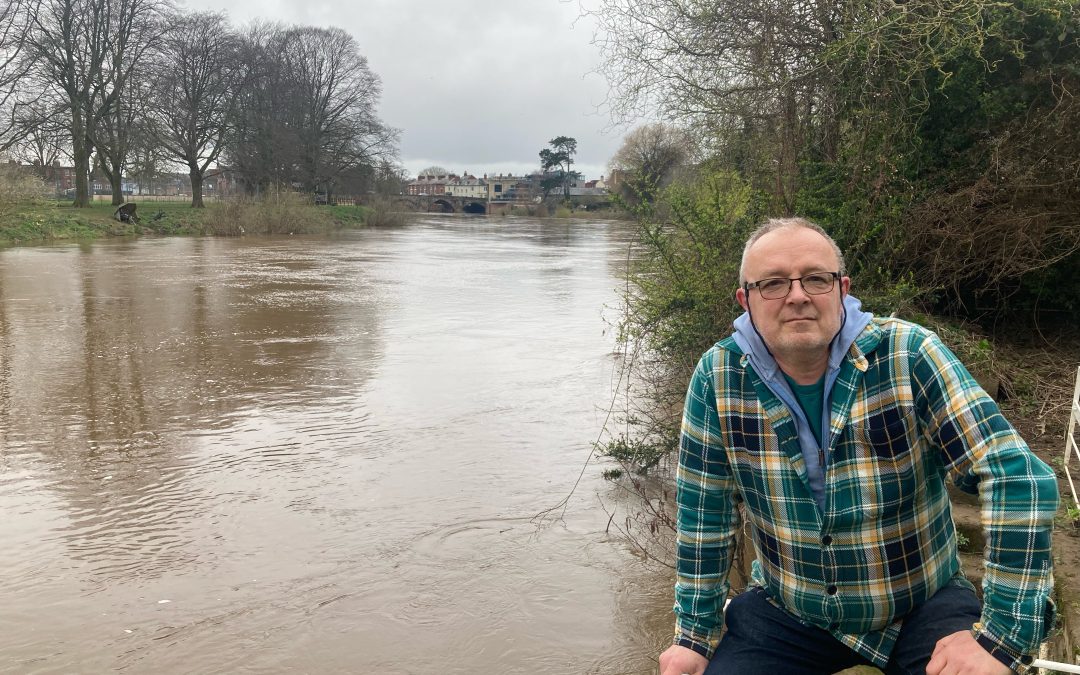Please Note: The following articles is a press release from law firm Leigh Day:
A legal claim potentially worth hundreds of millions of pounds has been launched by law firm Leigh Dayin a bid to compensate thousands of people living in the Wye catchment likely to have been affected by a major degradation of the River Wye and its tributaries in recent years.
The claim will be brought against Avara Foods Limited, one of the UK’s biggest food producers, alleging that industrial scale chicken farming in the River Wye catchment area is polluting the River Wye and surrounding land.
Evidence shows the operations of Avara Foods to supply UK supermarkets has been the overwhelming cause of phosphorous pollution which is damaging the River Wye, says Leigh Day.
Avara has said that it will cease polluting the river in the future. However, Leigh Day will argue that Avara Foods is responsible for the damage that has already been caused and should clean up the River Wye and the surrounding land, as well as pay hundreds of millions of pounds to people and businesses whose lives, livelihoods and enjoyment of the area has been impacted because of the effects of pollution.
The legal claim will also look to prevent Avara Foods from polluting the river further if the company doesn’t carry out its pledge.
People who can join the legal claim will have a claim alleging private and public nuisance. They will live in a 4,000 sq km area in Powys, Herefordshire and Monmouthshire.
They will be:
People whose land and property surrounds the River Wye – potentially thousands of claimants
People who belong to the community surrounding the Wye – potentially tens of thousands of claimants
The claimants will include people affected by the pollution such as swimmers, canoeists, walkers, clubs, organisations, anglers and businesses whose lives and trade has been hit by the worsening condition of the river, or the nuisance effects on those living near chicken farming, such as smells, insects and noise.
The businesses affected will include those working in tourism, hospitality and leisure.
The River Wye has been at the forefront of a major expansion of the chicken industry in the UK. Between 2013 and 2017 the number of birds in Herefordshire rose by one-third and researchers estimate the area now houses 23 million or more birds at any one time, generally concentrated in very large poultry units.
The largest poultry processor is Avara, which is reportedly responsible for 80% of the birds in the River Wye catchment area.
It is believed that a significant factor in the increase in poultry production in the region after 2018 was in order to meet the chicken meat demands of Tesco, a customer of Avara Foods.
High intensity farming, such as that required by the large-scale operations of Avara Foods, has affected the water quality of the River Wye to which landowners and others have a right under common law, the legal claim will say. Some people living in the area have reported sickness after swimming, and last year the river was downgraded to “unfavourable – declining” status by the government nature watchdog Natural England. This is only two stages away from the River Wye being listed as “destroyed”.
The claim will allege that the scale of the operations of large corporate poultry producers is generating significant quantities of phosphorous-rich manure which leach into the soil and into the river.
This is raising phosphorous levels in the water which cause algal blooms which result in odour, insect swarms, biodiversity loss and water quality reduction.
Avara Foods is a UK subsidiary of US multinational Cargill Plc which has faced similar claims in the US as a result of polluting the Illinois River due to the same practice of high intensive poultry farming.
In 2023, the Oklahoma Court ruled that Cargill Inc polluted the Illinois River by spreading chicken manure on land so that it then leached into the river’s watercourse.
The judge in that case found that Cargill knew or should have known that using poultry waste as fertilizer posed a risk to waterways, and the UK claimants will similarly allege that Cargill Plc and Avara Foods knew that the outcome of intensive poultry farming would cause the pollution of the River Wye but continued with their operations anyway.
Avara Foods says it is committed to playing its part in the restoration of the River Wye “by taking accountability for the poultry manure that originates from it supply chain . . . but reversing the decline of the river is beyond the means of any single organisation”.
The civil claim is being handled by a team led by Leigh Day partner Oliver Holland.
Leigh Day partner Oliver Holland said:
“We consider that the significant decline in the health of the River Wye over the last few years is clearly linked to the significant increase in intensive poultry farming in the main brought about by Avara Foods. The lives and livelihoods of those living in the River Wye area are being significantly impacted only to the benefit of Avara Foods, a subsidiary of US multinational Cargill Plc.
“This destruction of one the UK’s most beautiful natural areas cannot continue, which is why we are bringing this legal action.”
The claim is supported by charity River Action. Chair and founder Charles Watson said:
“With around a quarter of the country’s chickens now being reared in the catchment of the River Wye, the waste emitting from this totally unsustainable concentration of poultry production has blighted communities across the region.
“With a huge percentage of this industry controlled by Avara, it is entirely appropriate that the polluter must now be made to pay to clean up the mess we believe it has created and subsequently profited from. We therefore applaud this action being taken by Leigh Day to seek recompense for the pollution of this magnificent river.”
Anyone who thinks they have a claim against Avara Foods because of nuisance they have suffered because of the impact of chicken farming in the Wye Valley, can get in touch with the River Wye claim legal team at Leigh Day by contacting riverwyepollution@leighday.co.uk
Legal basis for the claim
The basis for the private nuisance claim is that:
Avara has a duty not to impact the reasonable use/enjoyment of neighbours’ land by conducting activity beyond reasonable land use
The pollution of the river; and odour and insect pollution caused by the intensive poultry units (IPU) breaches that duty
By controlling the IPUs, Avara has exercised sufficient control over the nuisance to be liable for the nuisance caused by them
The impact of the scale of intensive poultry farming required by Avara Foods’ regional operations on the river and the local community was entirely foreseeable, particularly given the successful liability claim against Avara Foods’ ultimate parent company Cargill, Inc. for the poultry farming pollution of the US river Illinois
Property owners bordering the river (including those with rights to the riverbank and angling/fishing rights) are entitled to recover the loss they have suffered, including damages for loss of amenity and fall in property value. They can also seek remedial action e.g. cleaning up of the river.
Property owners bordering intensive poultry farming units are entitled to recover the loss they have suffered, including damages for loss of amenity from odour and insects and fall in property value. They can also seek remedial action e.g. cleaning up of the river.
Businesses owning affected property which have suffered financial losses are also entitled to be compensated.
The basis for the public nuisance claim is that:
Avara Foods has a duty not to impact the life, health, safety and/or comfort of the public
It has breached this duty by polluting the river
Those who have suffered a particular damage over and above the general public are entitled to be compensated, including for financial losses of a local business and loss of amenity. Remedial action can also be sought.
Separate claim against the Environment Agency
The deterioration in the state of the River Wye has been well documented and has resulted in a public law claim against the Environment Agency.
Brought by River Action, who are represented by the environment team at Leigh Day, the judicial review claim cites the Environment Agency’s failure properly to enforce the rules governing the spreading of organic manure and artificial fertiliser that can be spread on agricultural land from which water runs off and leaches into the River Wye. That claim was heard in the High Court on 7-8 February 2024.
It pointed out:
The Wye was designated a Special Area of Conservation (SAC) to protect the river’s once-famous extensive Ranunculus river weed beds. However over 90 per cent of the river’s Ranunculus has now been lost, smothered by the algal blooms which means the river is not meeting the SAC conservation status specified by the Habitats Directive. In June 2020, a thick algal bloom extended for over 140 miles, almost the entire length of the river.
A study published in May 2022 by the University of Lancaster, Re-focusing Phosphorus use in the Wye Catchment (RePhoKUs Study) concluded that 60-70 per cent of the river’s total phosphorus load now comes from agriculture and an excess load of 3,000 tonnes of phosphorus is still being added to the river catchment area each year. This excess is accumulating at a rate equivalent to 17kg of phosphorus per hectare when the national average is 7kg per hectare.

